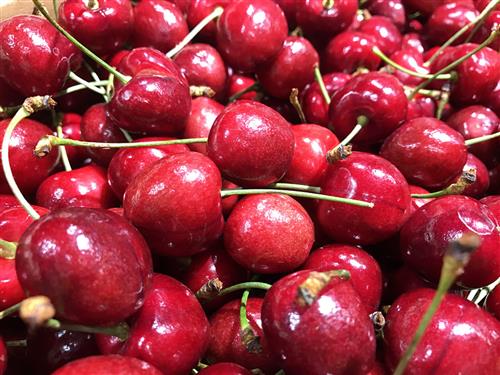Relatives and friends are sick, people often bring fruit to visit, but what kind of fruit patients actually have to pay attention to. Here's what inventory you need to eat for which fruit. ★ Myocardial infarction, stroke patients Appropriate: banana, orange, peach Bogey: persimmon, apple Myocardial infarction, stroke patients should eat bananas, oranges, peaches and other laxative fruit, should not eat persimmons, apples. Because persimmon, apple and other fruits have higher content of tannins, they are likely to cause constipation, and constipation can make patients with myocardial infarction and stroke worse. ★ Patients with stomach and duodenal ulcers Should: papaya, longan Avoid: Yangmei, lemon, hawthorn, plum, kiwi Gastric and duodenal ulcer patients, if too much stomach acid, should not eat bayberry, lemon, hawthorn, plum, kiwi and other fruits. Because these fruits contain a lot of vitamin C, it will increase stomach acid, increase the burden on the stomach, produce abdominal pain, pantothenic acid, heartburn and other symptoms. Eat papaya, because papaya enzyme contains papaya, helps to break down and accelerate protein absorption, can ease indigestion and gastritis, papaya is also a good food for the spleen and stomach, stomach pain. Longan also has a variety of functions such as impotence, Qi and replenishing spleen. ★ Heart failure patients Appropriate: apples, bananas Bogey: watermelon, coconut Heart failure patients should eat apples, bananas and other fruits, should not eat watermelon, coconut and other fruits with more moisture, because patients are to avoid excessive intake of water, water will rapidly increase blood volume, thereby increasing the burden on the heart, heart failure patients must be strict Control the daily intake of water so as not to aggravate the burden on the heart, so fruits that are rich in moisture should be avoided as much as possible. ★ Diabetes patients Appropriate: watermelon, apple, pear, kiwi Avoid: banana, longan, jujube, mango, peach, lychee, persimmon People with diabetes can't generalize about eating fruit. If the postprandial blood glucose is less than 10 millimoles/liter, you can eat watermelon, apple, pear, kiwi, etc. with relatively low sugar content. It is best to use these fruits as snacks between meals. It will increase blood sugar and prevent hypoglycemia. Fruits with relatively high sugar content, such as bananas, red dates, litchi, and persimmons, should be eaten less, and fruit should also be monitored with blood glucose. ★ Respiratory tract infections Appropriate: pear, wolfberry, grapefruit, apricot Avoid: citrus, sugar orange Patients with respiratory infections, especially those accompanied by sore throat, cough, and expectoration, should eat pears, wolfberry, grapefruit, apricot, and other fruits. They can have the effect of moisturizing the lungs and phlegm. It is best not to eat too much sugar or easy to get angry. The fruit, such as citrus, sugar orange and so on. ★ Hepatitis patients Should: pear, banana, apple, watermelon, horseshoe, jujube, grape Avoid: grape, pomegranate, pear, grapefruit (hepatitis B patients swollen stomach Deficiency) Nutritionists have found that pears, bananas, and apples are rich in fiber, vitamins, and minerals and are good for health. In patients with cirrhosis and ascites, hypokalemia often occurs, and bananas have a high potassium content, which is an ideal source of potassium in foods. Watermelon has a diuretic effect, and patients with cirrhosis and ascites are most suitable. Horseshoe, red dates, and grapes also contain vitamin c, sugar, and minerals. The jujube has the effect of supplementing blood and nourishing the liver; the horseshoe has the effect of detoxification and jaundice; the grape has the benefits of protecting the liver and increasing the appetite. Hepatitis B patients if swollen stomach Deficiency, you can not eat like ordinary hepatitis B patients, grapes, pomegranates, pears, grapefruit and other cool fruits, but should eat longan, jujube, litchi and other warm food. ★ Diarrhea patients Appropriate: cherry, apple, litchi, guava, bayberry Avoid: kiwifruit, dragon fruit, mulberry, persimmon, strawberry, banana Diarrhea patients should eat less fruit with seeds, especially those with small seeds, such as kiwi, dragon fruit, mulberry, persimmon, strawberry, banana (now many banana varieties are degenerated), oysters, melons, watermelons, Grapes and the like. Most of these fruit seeds are fibers, which cannot be digested and absorbed by the intestines. They stimulate intestinal peristalsis and promote faster excretion of intestinal contents. ★ Acne patients Appropriate: bananas, pears, peaches, oranges Avoid: mango, durian, litchi, longan, persimmon, hawthorn, apple Hemorrhoids patients should eat bananas, pears, peaches, oranges, in order to profit intestinal bowel movements; should not eat persimmons, hawthorn, apples, etc., because these fruits contain more tannic acid, astringent intestinal diarrhea, easy to cause constipation after eating. In addition, we must not eat the fruits of aphrodisiac: such as mango, durian, litchi, longan and so on. Dietary Supplements Ingredients
Dietary supplements are prescribed for products intended to supplement the diet, which may contain one or more of the following dietary ingredients, a vitamin, a mineral, an herb (herbal) or other plant, an amino acid, a food component used to increase the total daily intake to supplement the diet, or a concentrate, metabolite, component, extract or combination of the above ingredients. It also includes approved new drugs, vitamins or biologics that have been marketed as dietary supplements or food products before they are approved, issued or licensed.
Small Molecule Peptides Powder:Bovine bone oligopeptide powder,Fish collagen peptide powder,Sunflower disk oligopeptide powder Dietary Supplements Ingredients,Dietary Ingredients,Dietary Supplement Ingredient,Nutrition Enhancers Shaanxi Zhongyi Kangjian Biotechnology Co.,Ltd , https://www.zhongyiherbs.com
Oat protein peptide powder,Corn oligopeptide powder,Soybean peptide powder,Whey protein peptide.
Amino acids include glycine, alanine, valine, leucine, isoleucine, methionine (methionine), proline, tryptophan, serine, tyrosine, cysteine, phenylalanine, asparagine, glutamine, threonine, aspartic acid, glutamic acid, lysine, arginine, histidine.